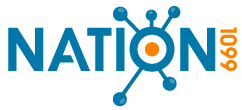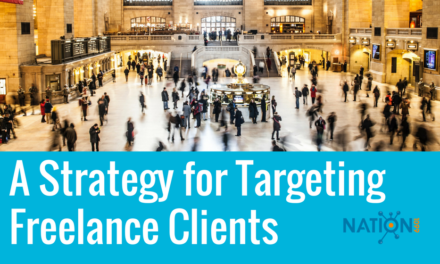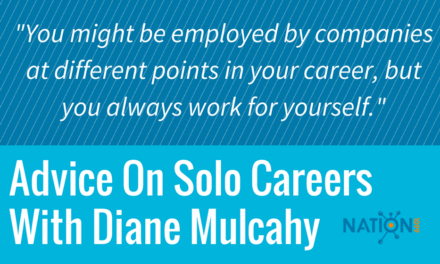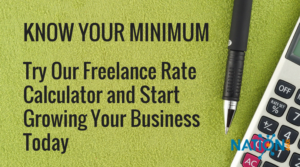In our recent post 6 Fearless Steps You Can Take to Grow Your Consulting Business, we discussed the importance of creating a functional business plan for your independent career. As we’ll explain in this piece, if you write a business plan that is truly tailored to your own consulting career, it likely will not be the headache you’ve been dreading. This is the plan and the roadmap you — and you alone — need to succeed.
It’s the content that matters — not the aesthetic
We all have our own general perception of what a business plan is — perhaps something spanning 50 pages of single-spaced text and 45 minutes-worth of Powerpoint slides.
Let’s take the pressure off for a moment. Given how overwhelmed we sometimes feel at the thought of business planning, many of us are quick to seek out a template. There are plenty out there. We open one up and see — oh no, our fears rang true — it’s a monster!
What isn’t usually said though is that many of the business plan templates aren’t necessarily scripted for solos. Many contain a number of superfluous sections that won’t help you and won’t encourage anyone to actually read your plan.
Independent consultant Will Kenny wrote an excellent article that straightens out many of the myths surrounding templates and the reasons why you can do better with your own common sense and creativity.
“You may not need a lengthy, detailed document at all,” says Kenny. “If you never share your business plan with anyone else, do not put hours into making it beautiful and answering questions that don’t apply to you.”
Who are your ideal clients and how do you reach them?
Your services are so revered that everyone wants to be your client, right? Small businesses, Fortune 500 Companies, lemonade stands, etc.
Well, no. It’s almost shocking the number of solopreneurs who fail to think this through. You may be a phenomenal consultant with many years and projects worth of experience but if you haven’t taken the time to drill down and consider who your ideal client demographic is, then you’re falling short in your planning.
Related reading: How To Get Clients Fast With A Client Profile Strategy
Even if Facebook advertising isn’t in the cards for you, mine your Facebook page for useful information. The audience insights breakdown is an excellent tool that will show you where your audience lives, what they like, and how to reach them. Take a little time to play with it while you write your business plan.
Define your unique value proposition (hint: be specific!)
Independents often avoid specificity in describing their value proposition. Consider these questions to identify what makes you stand out:
- Why do you do what you do?
- What makes your approach special?
- Do you see inefficiencies in your business sector that your creative thinking can remedy?
These are all vital thinking points when brainstorming a business plan for yourself and working through the all-important process of productizing your services. Remember to be concise and precise.
Decide how to sell that unique value proposition
Does your consulting lend itself well to an ebook or online class? If you’re struggling with this piece of your business plan, pause and back away from the plan itself for a moment. Take ten minutes to draft up a simple mission statement or “vision document” of your service.
Try to talk about yourself and your work in the most specific way you can manage. Any time you say “I will do x” follow it up with a “How?”
Your freelance business model should create regular cash flow
This can be tough, especially if you’re just starting out. You need to create a functional framework for your expected income via your consulting business — what you’ll be starting with, what your expenses will be and when you expect to begin netting a profit. Putting together a conservative timeline and some prudent estimates will help keep your business on track.
Related reading: The Beginner’s Guide To Getting Upfront Payment From Freelance Clients
Because cash flow can be so difficult to manage as a consultant, it’s a good idea to build some safeguards into your invoicing that will keep your cash flow fluid throughout a project’s lifespan. Popular finance author Brian Hill advises consultants to invoice at the beginning, middle and end phases of a client’s project. “This will partially protect you from less than honest clients, or those who decide to abandon a project before it is completed,” he says.
Related reading: Partnership Consulting: An Ideal Way to Build Your Consulting Practice
Don’t outsource it! Actually write your freelance business plan.
It should go without saying that the business plan for your consulting career should be your unique creation. Passing it off to someone else to write is a recipe for failure.
Founder and Chairman of Palo Alto Software and bplans.com Tim Berry recounts the exact reasons why this is the case in a must-read blog for the U.S. Small Business Administration.
“There was a problem with the plan: The founders didn’t know it,” Berry says of the business plan he was hired to write. “They thought it was enough to have a plan, but it wasn’t. In every meeting I attended along with the founders, when there were critical questions, I had to answer them.”
Simply put, if someone else writes your business plan for your freelance business, it’s no longer your vision. It’s not something you live everyday and work toward. It’s someone else projecting how to make your business work.
It’s fine to consult with other specialists in your industry and get their feedback on your (hopefully) very logical document but don’t cheat yourself on this. Writing the right business plan for your consulting practice is a challenge but it’s a very doable one.
Write it and let it evolve
These points should have helped to lessen some of the nerves that often surface when you write a business plan. And if you’re worried about being locked into a plan just because you drafted it up — breathe easy! Business plans naturally evolve with the careers they complement. Nothing left to do but get started.

Ben Shanbrom is a freelance writer, musician and copy editor who works with artists and clients within his native New Haven scene and beyond.










